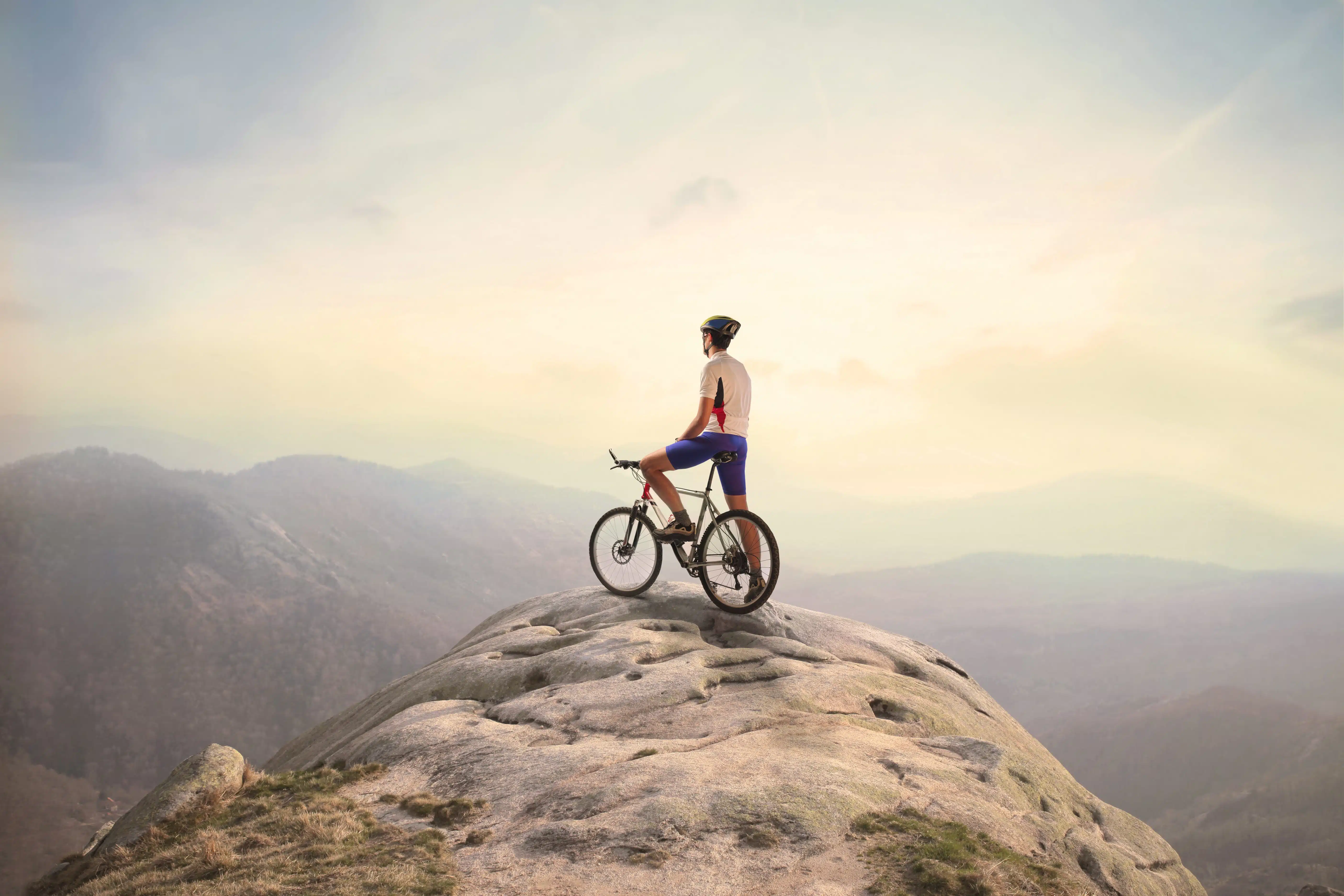Cycling tours offer an immersive way to explore new terrains, cultures, and landscapes. Unlike traditional tourism, biking adventures allow travelers to experience destinations at a slower pace, often leading to more meaningful interactions and discoveries. This guide aims to provide comprehensive insights into planning and executing a cycling tour, ensuring an enriching and memorable adventure. From selecting the right gear to understanding local customs, we cover essential tips and insider knowledge for novice and experienced cyclists.
1. Choosing Your Destination
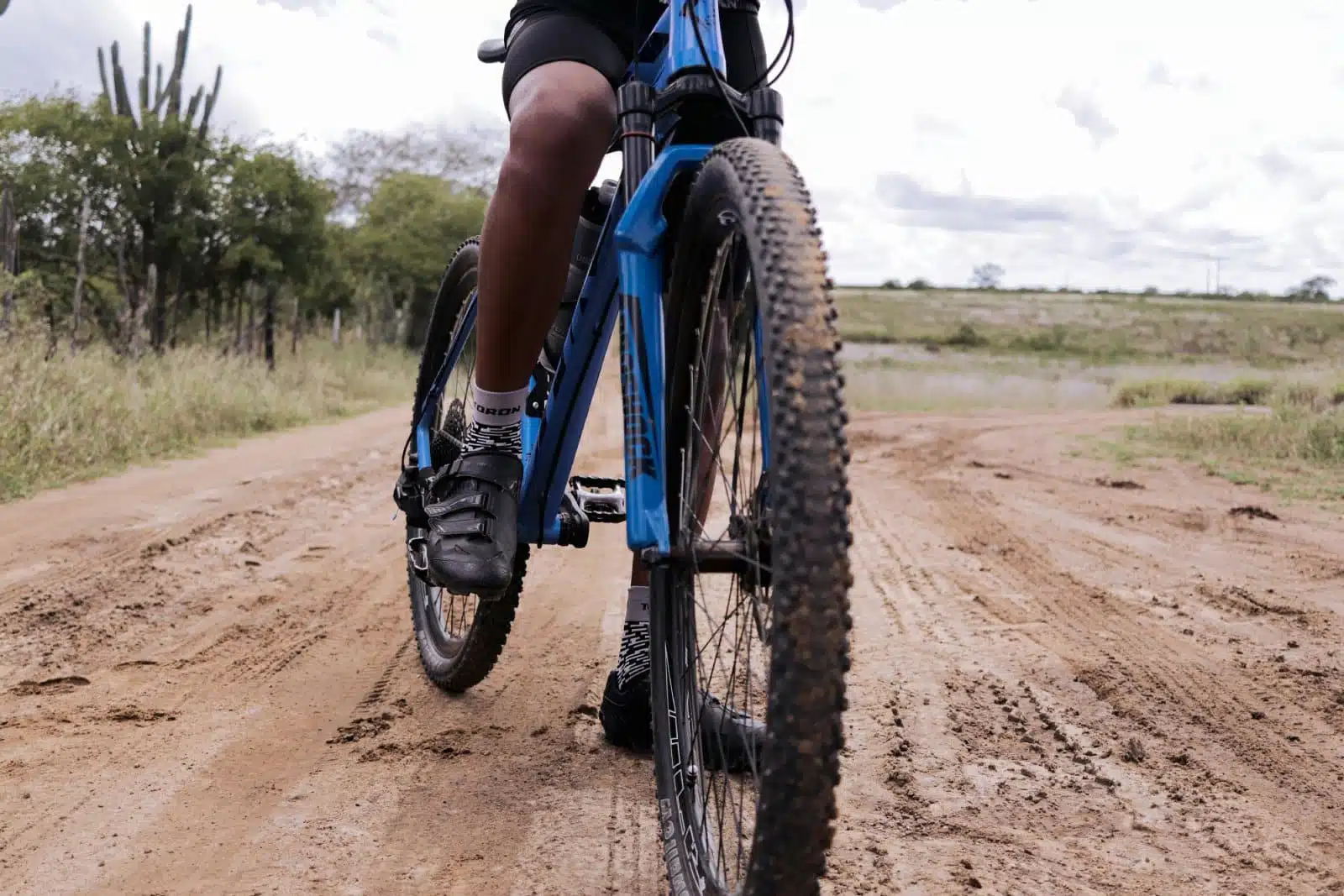
Image Credit: Pexels / Priscila Almeida
Selecting the right destination is the foundation of a memorable cycling tour. Consider what landscapes inspire you—rolling vineyards, rugged coastlines, serene forests, or bustling cities. Each setting offers unique challenges and rewards, from the steep climbs of mountainous regions to the cultural enrichment of urban environments—research destinations known for their cycling-friendly infrastructure, scenic beauty, and cultural richness. Consider the experience you seek: a peaceful retreat into nature, a historical journey through ancient cities, or a challenging trek across varied terrains. Look into local cycling routes, available accommodations, and support services for cyclists. A well-chosen destination matches your cycling preferences and fitness level and ignites your curiosity and passion for adventure.
Insider’s Tip: Opt for destinations with a well-established cycling culture. Such places often have better infrastructure for cyclists, including dedicated bike lanes, rental services, and repair shops.
2. Preparing Your Gear
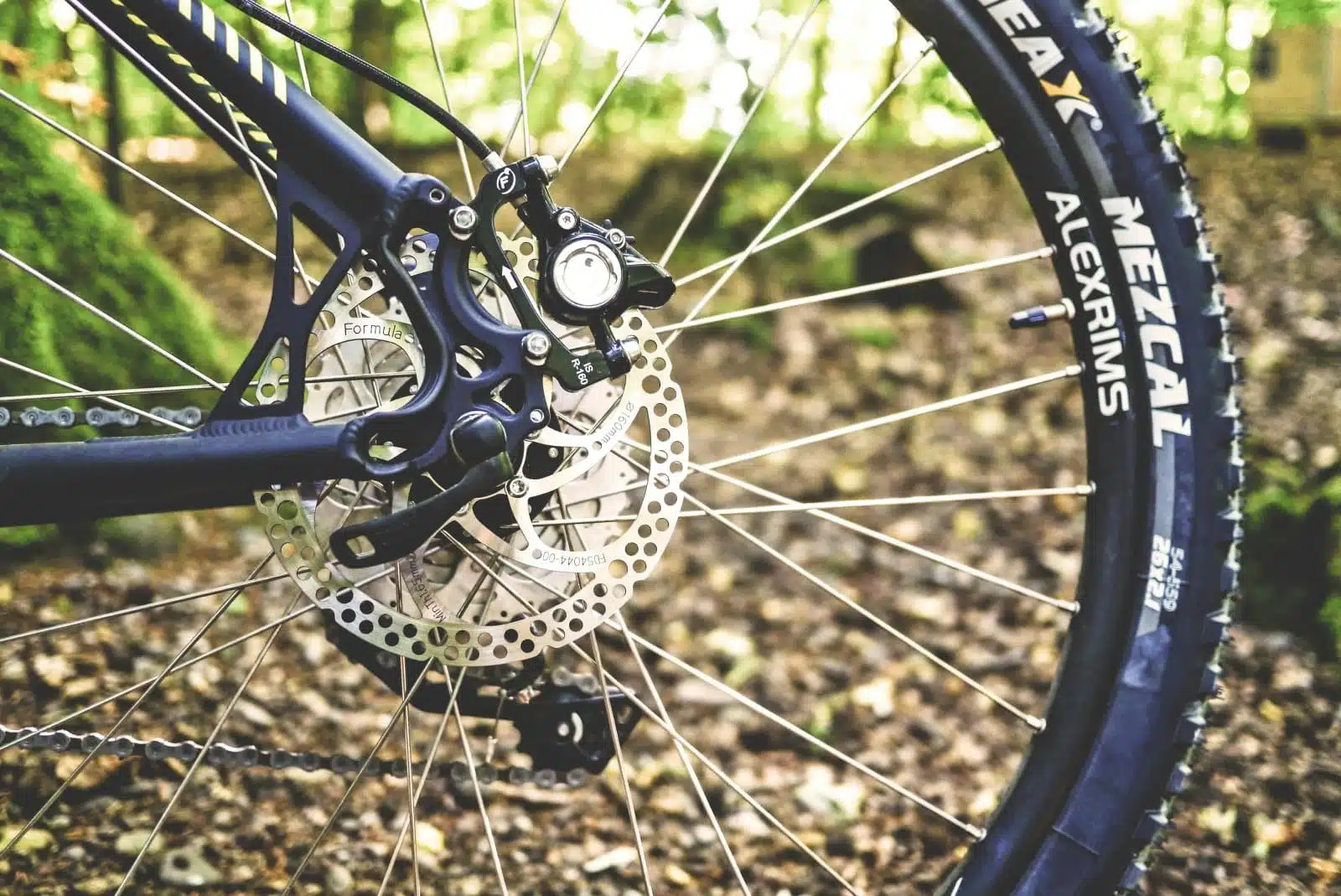
Image Credit: Pexels / Lum3n
The importance of preparing your gear for a cycling tour cannot be overstated. Your bicycle should be suited to the terrain of your chosen destination—whether that means a rugged mountain bike for off-road trails or a lightweight road bike for smooth asphalt. Ensure your bike is in top condition with a thorough check-up and any necessary adjustments or repairs. Essential gear extends beyond your bike; it includes a helmet for safety, appropriate clothing for the weather, and a repair kit for on-the-go maintenance. Consider how you’ll carry your essentials for multi-day tours, whether in panniers, a backpack, or a trailer. Comfort and reliability are key, so invest in quality gear that can withstand the demands of your journey. Remember, the right gear enhances your safety and comfort and your overall enjoyment of the tour.
Insider’s Tip: Test your gear on shorter rides before your tour. This practice helps identify any discomfort or technical issues that could become problematic on longer journeys.
3. Navigating Routes and Maps
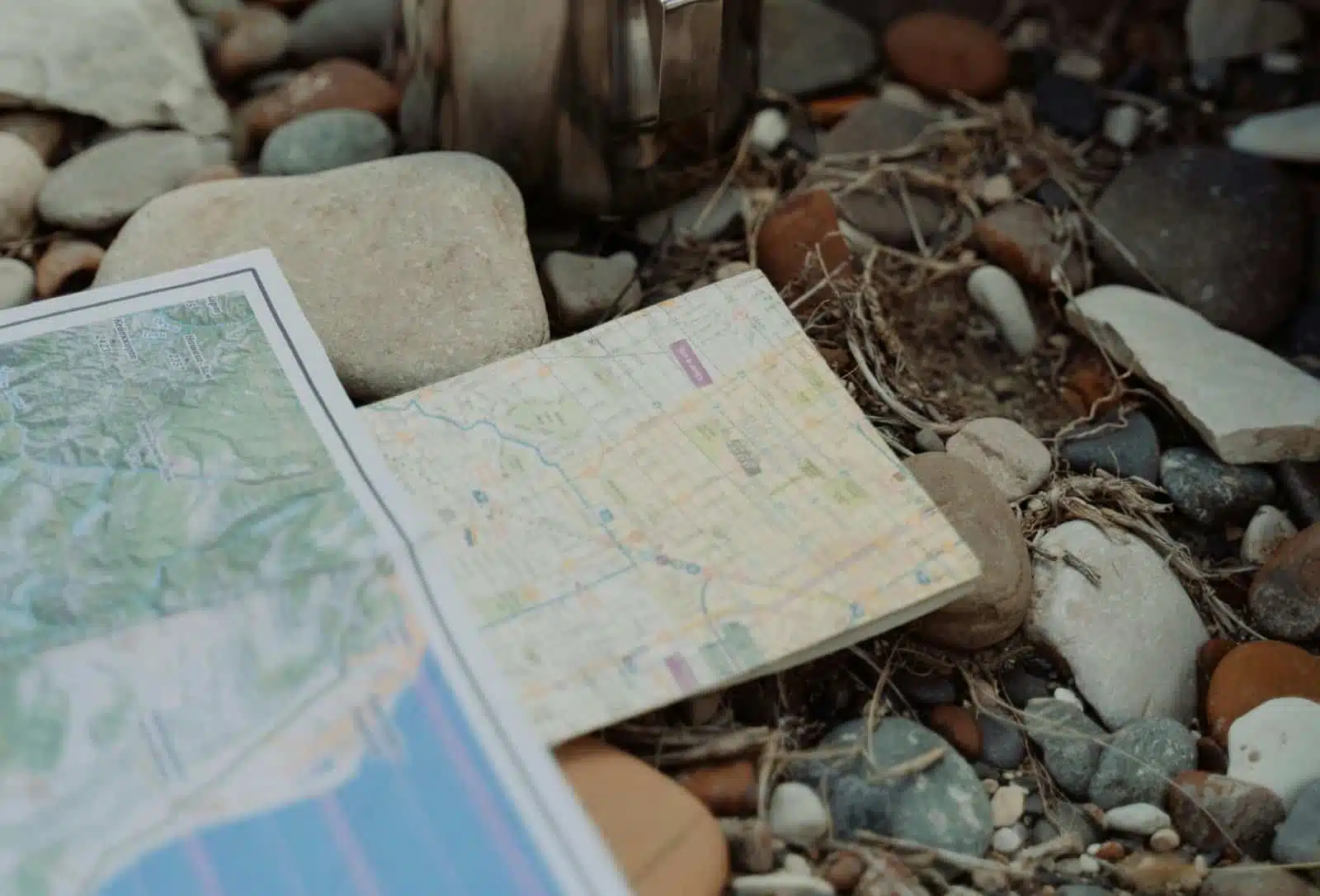
Image Credit: Pexels / cottonbro studio
In the planning phase of your cycling tour, dedicating time to navigate your routes and understand the maps of your destination is crucial. Today’s technology offers a plethora of digital mapping tools and GPS devices designed to guide you through unfamiliar terrains. However, complementing these digital resources with local insights can greatly enhance your experience. Study the topography, road conditions, and any potential hazards along your route to avoid surprises. Pay attention to points of interest that may offer rest, resupply, or simply a breathtaking view worth the detour. Local cycling clubs and online forums can be invaluable resources for route advice and tips that only locals might know. A well-planned route ensures a safer journey and one enriched with the best experiences your destination has to offer.
Insider’s Tip: Combine digital tools with local knowledge. Consult with local cyclists or cycling clubs for route recommendations, as they can offer insights not found on maps.
4. Training and Fitness

Image Credit: Pexels / Andrea Piacquadio
Embarking on a cycling tour demands mental readiness and a level of physical fitness that can handle long distances and varied terrains. Your training regimen should start months in advance, gradually increasing in intensity and duration to build endurance, strength, and flexibility. Incorporate long rides that mimic the daily distances you plan to cover, and include hill climbs if your route will be hilly. Cross-training activities such as swimming, running, or yoga can enhance your overall fitness and help prevent injuries by balancing muscle use and improving flexibility. Familiarizing yourself with nutrition and hydration strategies that sustain you through your rides is crucial. This comprehensive approach to training will prepare your body for the demands of the tour but also enhance your enjoyment and ability to tackle challenges along the way.
Insider’s Tip: Incorporate cross-training into your regimen. Swimming, running, and yoga can improve your overall fitness and help prevent cycling-related overuse injuries.
5. Nutrition and Hydration

Image Credit: Pexels / The Lazy Artist Gallery
Proper nutrition and hydration are an essential part of any successful cycling tour. On the road, your body will require a steady supply of energy and fluids to perform optimally. Start by focusing on a balanced diet rich in carbohydrates, proteins, and fats, and begin hydrating well before you feel thirsty, especially in hot or humid conditions. During your rides, consume small, frequent meals and snacks to maintain energy levels, and carry electrolyte replacements to replenish salts lost through sweat. It’s also vital to understand how your body reacts to different foods and hydration products during physical exertion, so experiment to find what works best for you during your training. This proactive approach to nutrition and hydration will help you maintain energy levels, prevent cramps and dehydration, and ensure you can enjoy every mile of your adventure.
Insider’s Tip: Experiment with various energy bars, gels, and drinks during training to find what works best for your stomach and taste preferences.
6. Safety and First Aid

Image Credit: Shutterstock / PeopleImages.com – Yuri A
Your safety and well-being are paramount on a cycling tour. This encompasses not only adhering to road safety rules and wearing a helmet but also being prepared for any minor injuries or health issues that may arise. Equip yourself with a comprehensive first aid kit tailored to cycling-specific injuries, and educate yourself on basic first aid techniques and how to handle common ailments on the road. It’s also wise to carry a list of emergency contacts, including local emergency services for the areas you’ll be visiting, and ensure you have a means of communication in case of an emergency. Additionally, consider enrolling in a first aid course focused on outdoor activities to gain practical skills and confidence. Being well-prepared for safety and first aid will allow you to handle unexpected situations calmly and effectively, ensuring they don’t derail your adventure.
Insider’s Tip: Take a basic first aid course specifically designed for cyclists or outdoor adventurers before your trip.
7. Accommodation and Rest Days

Image Credit: Pexels / Ketut Subiyanto
Selecting suitable accommodations and scheduling rest days are critical components of your cycling tour that go beyond mere logistics. Whether you prefer the simplicity of camping or the comfort of hotels, your choices will significantly impact your recovery and enjoyment of the trip. Look for accommodations that cater to cyclists, offering secure bike storage and laundry facilities, and consider locations that allow you to explore local attractions or natural beauty on your rest days. These breaks from cycling are not just for physical recovery but also offer a chance to immerse yourself in the local culture, cuisine, and scenery, adding depth and richness to your travel experience. Planning your accommodation and rest days with care will ensure you have a comfortable, enjoyable base to explore and a chance to recharge fully for the next leg of your journey.
Insider’s Tip: Book accommodations with secure bike storage and consider locations that are cyclist-friendly or cater specifically to outdoor adventurers.
8. Packing Essentials
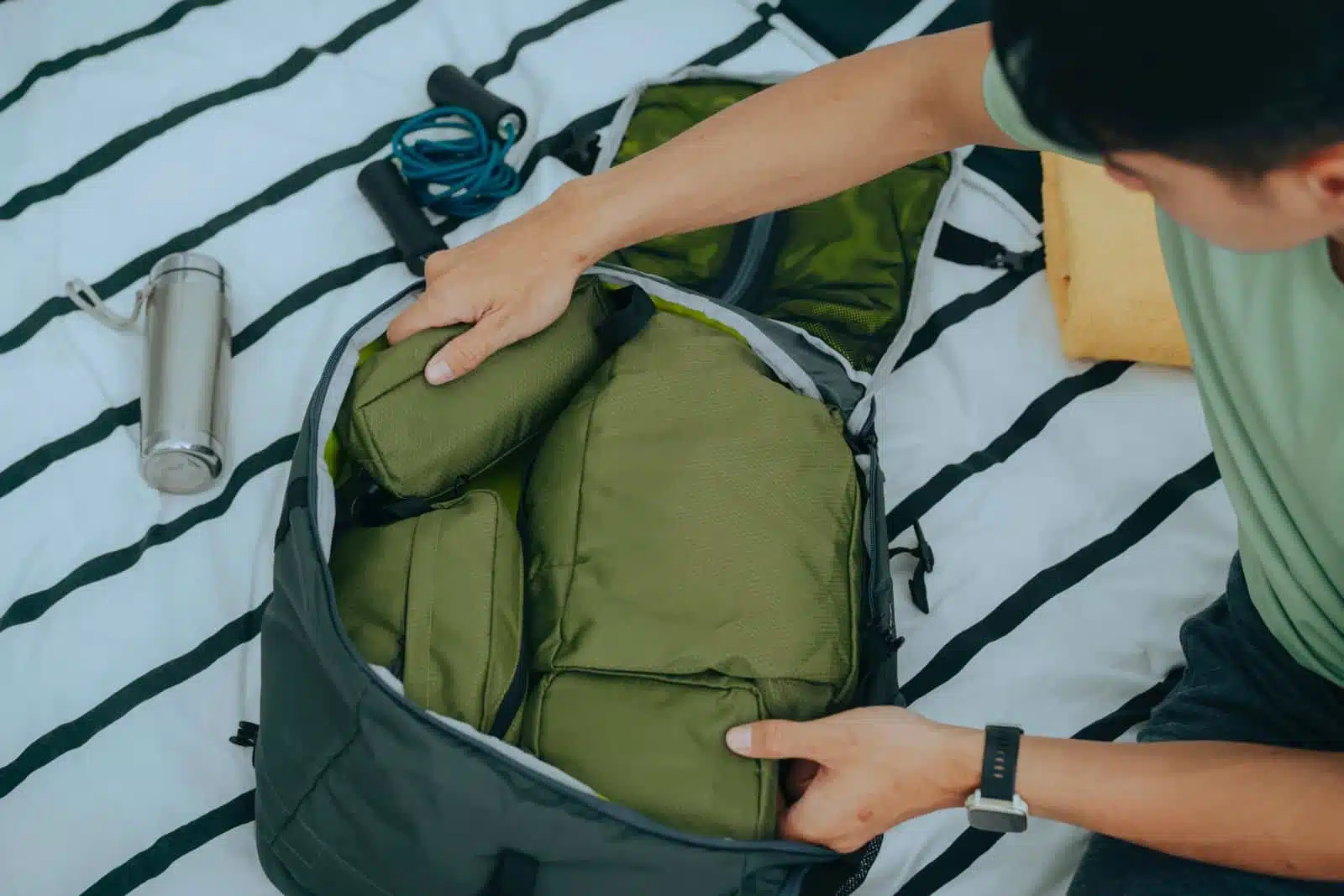
Image Credit: Shutterstock / Febriandi Dimas Wara
Packing for a cycling tour is an exercise in balance and foresight, requiring you to be prepared for various scenarios while keeping your load manageable. Essential items include cycling clothing for all weather conditions, a repair kit, spare tubes, and personal items like sunscreen and medications. Opt for lightweight, versatile gear that can serve multiple purposes, and organize your belongings to make them easily accessible. Remember, every extra pound can make a difference during long climbs and long days in the saddle. Additionally, consider the environmental impact of your choices, opting for reusable water bottles and eco-friendly products whenever possible. Thoughtful packing will ensure you have everything you need without being weighed down, allowing you to focus on the joy of the ride.
Insider’s Tip: Use packing cubes or bags to organize your gear by category (e.g., clothes, tools, personal care), making it easier to find what you need without unpacking everything.
9. Local Laws and Customs

Image Credit: Shutterstock / fizkes
Understanding and respecting local laws and customs is essential for a harmonious cycling tour. This includes familiarizing yourself with traffic regulations, cycling etiquette, and any specific rules related to cycling in natural areas or near historical sites. Being aware of local customs and engaging respectfully with communities you visit ensures a smooth journey and enriches your travel experience, opening doors to authentic interactions and insights into local life. Take the time to learn a few phrases in the local language, and always ask permission before taking photos of people or private property. This respectful approach will enhance your experience, foster positive interactions, and ensure you leave a good impression as a visitor on two wheels.
Insider’s Tip: Before your trip, connect with local cycling communities online to get firsthand advice and insights into navigating the local cycling culture.
10. Environmental Responsibility
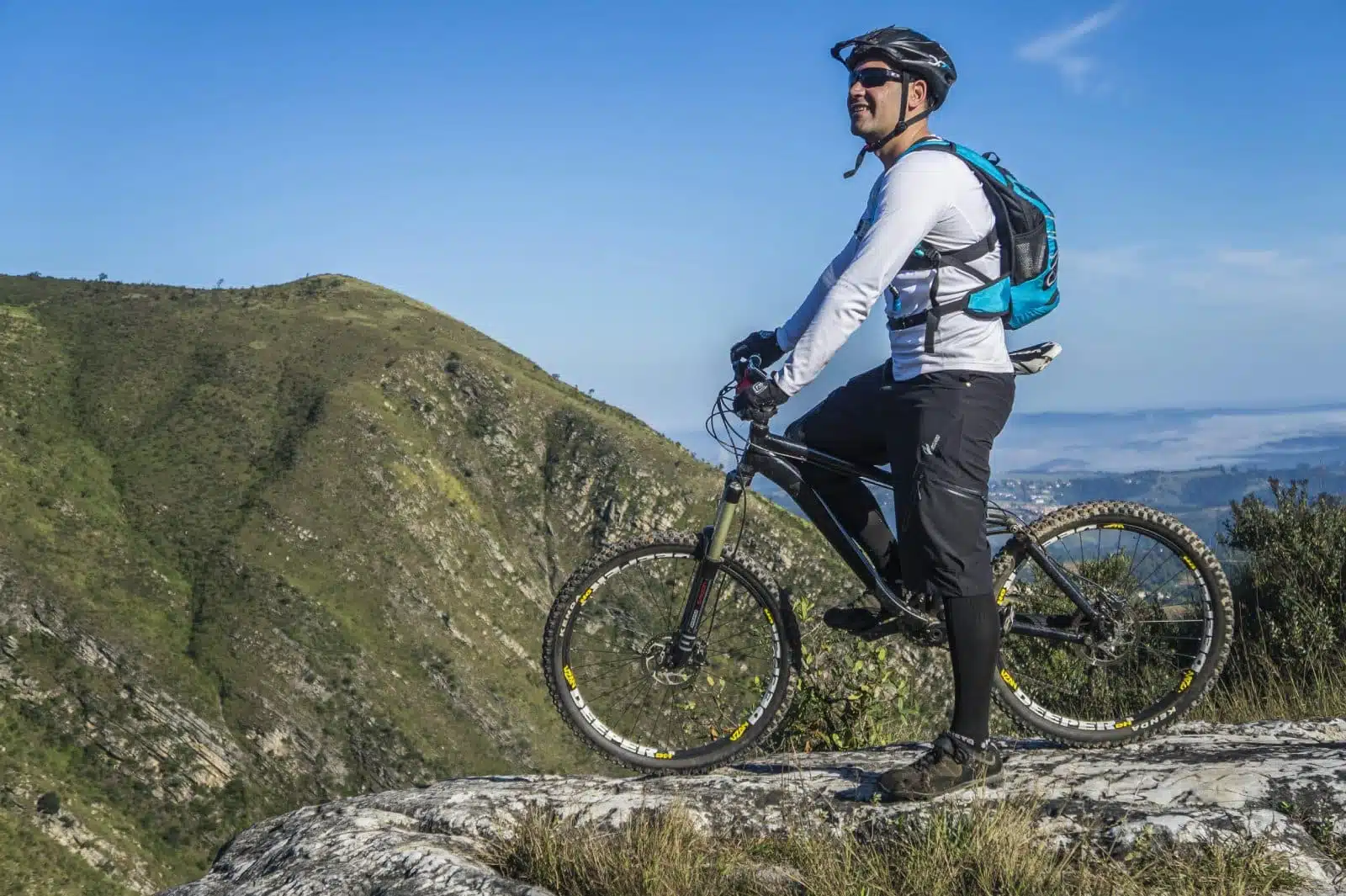
Image Credit: Pexels / Pixabay
As a cyclist exploring the beauty of our planet, you have a unique opportunity to connect with nature. It’s crucial to approach this privilege with a sense of responsibility, practicing Leave No Trace principles to minimize your impact on the environments you pass through. This means packing out trash, being mindful of wildlife and their habitats, and staying on designated paths and roads. Consider the broader environmental impact of your travel choices, from the transportation methods you use to reach your destination to the products you bring. By making conscious decisions that prioritize sustainability, you contribute to the preservation of the natural and cultural treasures you’ve come to explore, ensuring they remain vibrant and accessible for future generations of adventurers.
Insider’s Tip: Carry a small trash bag on your bike to pack out any litter you generate or find along your route.
The Bottom Line
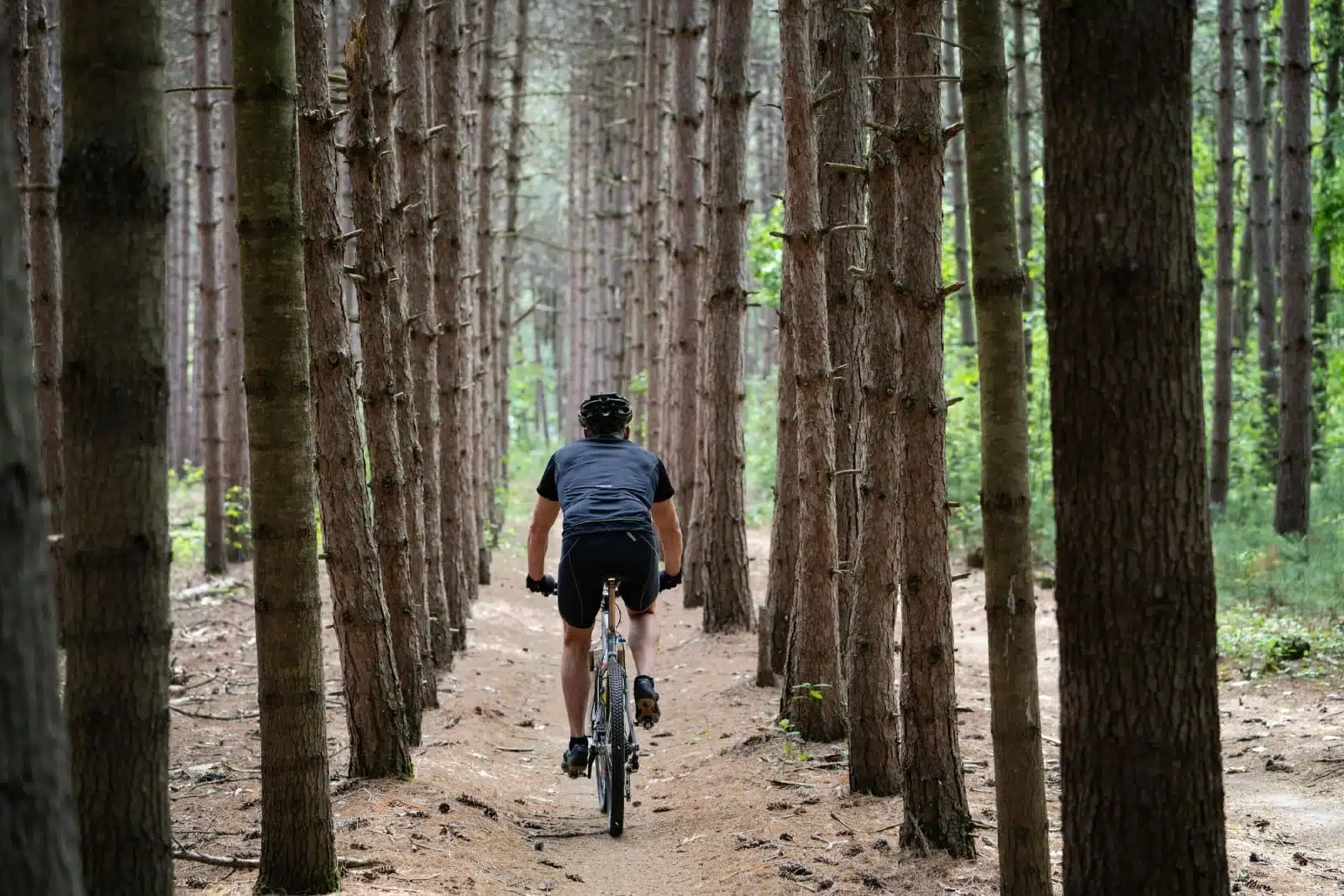
Image Credit: Pexels / Jody Parks
A cycling tour is an adventure that promises physical challenges and the opportunity to connect deeply with the landscapes and cultures you encounter. By carefully selecting your destination, preparing your gear, and planning your route, you set the stage for a journey beyond mere sightseeing. Remember, the essence of a cycling tour lies not in the distance covered but in the experiences and memories you collect along the way. Whether you’re winding through the countryside or scaling mountain passes, the freedom and intimacy of traveling by bike offer a unique perspective on the world. So, gear up, set your sights on the horizon, and pedal into your next adventure.
More From The Green Voyage
Top 10 Trending Travel Destinations 2024
6 Essential Banking Apps for International Travel – Managing Your Finances on the Go
Traveling With Kids – 10 Tips to Create Memorable Family Holidays
The post Cycling Tours – An Insider’s Guide to Biking Adventures 2024 first appeared on The Green Voyage.
Featured Image Credit: Pexels / Ollyy.
For transparency, this content was partly developed with AI assistance and carefully curated by an experienced editor to be informative and ensure accuracy.
Tips for Trip Success
Book Your Flight
Find an inexpensive flight by using Kayak, a favorite of ours because it regularly returns less expensive flight options from a variety of airlines.
Book Your Hotel or Special Accommodation
We are big fans of Booking.com. We like their review system and photos. If we want to see more reviews and additional booking options, we go to Expedia.
You Need Travel Insurance!
Good travel insurance means having total peace of mind. Travel insurance protects you when your medical insurance often will not and better than what you get from your credit card. It will provide comprehensive coverage should you need medical treatment or return to the United States, compensation for trip interruption, baggage loss, and other situations.Find the Perfect Insurance Plan for Your Trip
